(Porcupine fish are abundant off of the Ryukyu Islands- this is one that I saw on a dive close to Zamami island)
*Fugu is delicious, but how many people had to die before a safe technique was developed to separate the poisonous bits from the delicious, slightly toxic but safe to eat parts?
*How many sushi chefs have died after eating the liver of a fugu because they erroneously believed that they had built up an immunity to the toxin, or were egged on during a drinking session by the rest of the kitchen staff?
*Does anyone eat its cousin, the porcupine fish? It would make sense that something that is even more of a pain in the ass to catch and prepare would be even more delicious.
*It?s going to be hard to convince the Japanese in particular that it is in their best interest to cut down on the rate of seafood consumption. Even if they concede that it is necessary need to do this to protect the long-term interests of everyone regarding the declining stocks of fish, there is going to be some serious reluctance to comply with what is necessary. If they actually do cut down, I don?t want to be there to witness the withdrawal symptoms of Japan.
*Even discounting the fact that uni is sea urchin gonads, it is still disgusting. Admit it, it looks and has the consistency a baby turd.
*If you go to any Japanese aquarium and listen to the people around you, you will almost certainly hear someone say “oishisou” (that looks delicious). I wonder if they feel the same way when they visit Sea World and watch the Shamu show…
*Korean nori kicks ass! So do the technologically advanced wrappers that keep nori separate from convenience store onigiri until right before you eat them. By the way, if you?re lucky, you can sometimes find spam musubi in Japanese convenience stores.
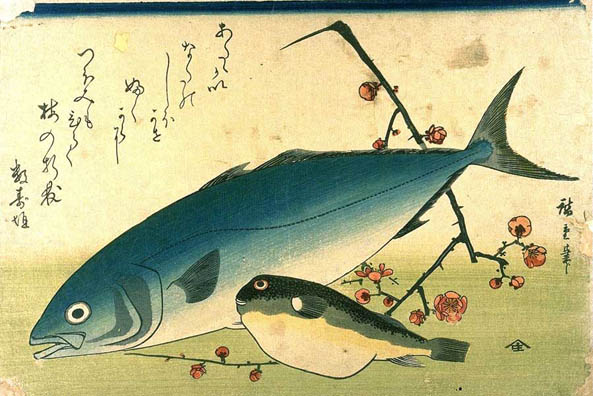
(Woodblock print by Hiroshige Ando)
*It’s cool how the yellowtail has so many names in Japanese:
ao
buri
hiramasa
inada
fukuragikando
kanburi
kozokura
mejiro
tsubasu
wakanago
wakashi
warasa
The names vary depending on the size of the fish, the location where the fish is caught, and also are the result of different dialects. Obviously, the people who came up with these names obviously really loved this fish. I would have never known how delicious it could be if the only yellowtail I had eaten was the stuff we catch back in California, though that stuff isn’t bad. In my opinion young Japanese yellowtail from cold waters make the most delicious tsukuri, Broiling the collar with a bit of salt is simply heavenly.
*It has been my experience that a restaurant that sells high-quality maguro and hamachi sashimi will inevitably sell out of the hamachi first. Maguro is good, but not a good enough substitute when you are really craving hamachi.
*If people looked like what they eat, then Osaka station would resemble a massive kaiten sushi restaraunt.
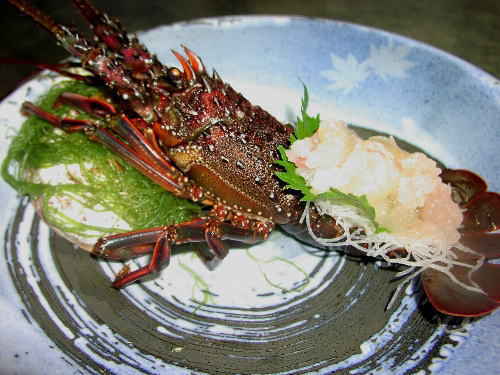
*Which lobster variety makes the best ise ebi sashimi? The best stuff I’ve had so far was from the relatively warm waters of the Amakusa Islands in Kumamoto. However, fish tend to taste better from colder waters, and lobsters lose their firmness of flesh as they get older. So would a young Maine lobster be even more delicious than one from Amakusa? How does Okinawa’s ise ebi compare?
*Ordering “tsukuri” sounds cooler than ordering “sashimi”, but people in Tokyo won?t know what the hell you are talking about.
*I wonder if people who regularly eat the clams from the Yodogawa are suffering any reproductive problems.
*I have been told that a really good way to catch unagi is to put an ayu in a two liter bottle and place it in a river with the mouth facing upstream. Unagi, it was explained to me, find ayu irresistible and once they squeeze into the bottle and eat the fish, they are unable to get out again. This reminds me of how some monkeys are easily trapped. Rice is put inside a hollow coconut, and when the monkey grabs onto the rice, they can?t pull their fist out of the trap. If they would only let go of the rice, their hand wouldn?t be stuck, but apparently monkeys like rice that much.
*Japanese people get confused when told that the jinbeizame (whale shark) is a fish, and some of them think that dolphins are fish. This never fails to be amusing.
*If you go swimming off of the coasts of Kyushu, don’t worry about the clear jelly fish so much. It’s the ones with red stripes that hurt like a bitch!
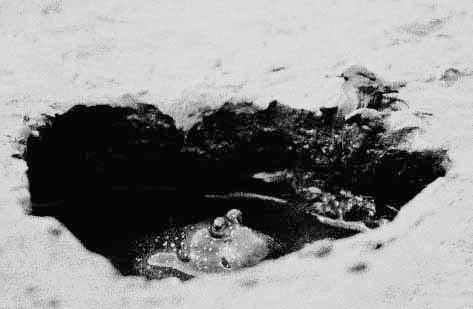
*Mutsugoro (famous in Saga-ken) is hands down the worst tasting fish I have ever eaten. If you can taste mud (a mutsugoro is a mudskipper btw) through a thick layer of teriyaki sauce, there’s probably not much that you can do to improve the flavor. The second and third most repugnant marine organisms I?ve tried in Japan would have to be hotaru ika (firefly squid) and fermented whale, respectively.
*I don’t like eating small fish that are candied and hard. It feels wrong in more that one way (link to small dried fish).
*Squid kicks ass in so many different ways: calamari rings with spicy salt, battered and fried in tonkatsu, tempura, and fish and chips style batter, dried, dried and coated with honey, cut up as sashimi, or even fried up as a steak or sauteed with some vegetables. It also makes a very handy all-purpose saltwater bait.
*The sushi with crunchy, yellow roe is nasty. Try some next time!
*Japanese salmonids (this includes both trout and salmon) taste a hell of a lot better than the stuff from America. For example, you can stick a skewer through a live Japanese trout, put some salt on its writhing body, broil it over some coals, and come out with some awesome fish on a stick. You can’t do this with trout back home and expect it to taste good. I wonder why this is.
*Of all the seaweeds, hijiki will supposedly make your hair the most beautiful.
*Do most people who claim to like hakarl (rotten and mouldy shark flesh) really enjoy it, or is it mostly a way to prove one’s virility? Considering that it is traditionally washed down with a drink nicknamed “Black Death”, I am leaning toward the latter explanation.
*Has anyone calculated the number of chirimen (tiny fish generally used as a condiment for rice) eaten in Japan in an average year? I am guessing that it?s around jucchopiki (ten trillion). How about for aji?
*What do Gharabaldis taste like?
*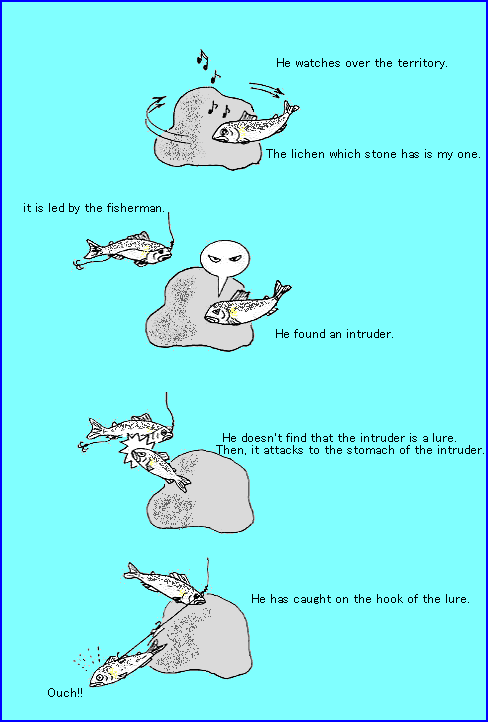
(link)
*Ayu fishing seems cruel and inhumane, though it is a very clever way to catch a fish that would otherwise be very difficult to catch on rod and reel. Ayu don?t eat bait, but they are territorial fish, so if one ayu intrudes the territory of another, it will ram it. Japanese fishermen figured out that by attaching hooks to the body of a ?rival? they could use a live fish as a lure. In order to attach the rig, you must perform some pretty serious pierce work on the fish that you will use. If you do go fishing for ayu there is a right way to set up the rig. If you cover the eyes of the fish while you are attaching the tackle to its body, it will be in much better condition and stay viable as ?bait? for a long while. If you don?t do this, it may go into shock.
*What type of fish do they use to make kamaboko and chikuwa? I want to see percentages of each species of marine organisms.
*Bioaccumulation is a motherfuckingbitch.
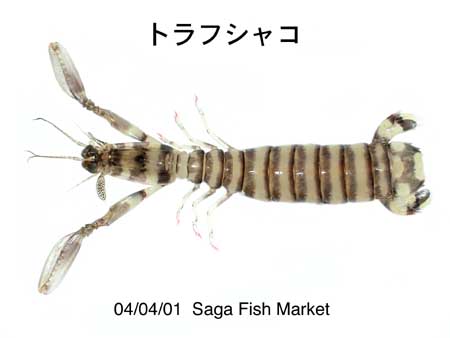
(from M. Nagano’s collection)
*I have never seen anyone eat a shako (a squilla, or more commonly known as the mighty mantis shrimp) at kaiten sushi except for Matt. We had to try it at least once, because we believe that you must try everything at a kaiten sushi restaurant at least once. Before I came to Japan, I had no idea that people ate these ferocious beasts

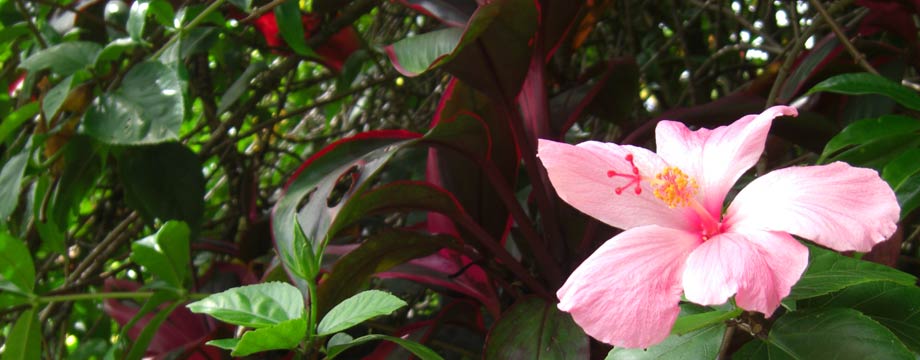
2 Responses to Thinking about edible marine organisms